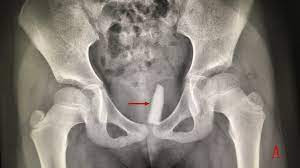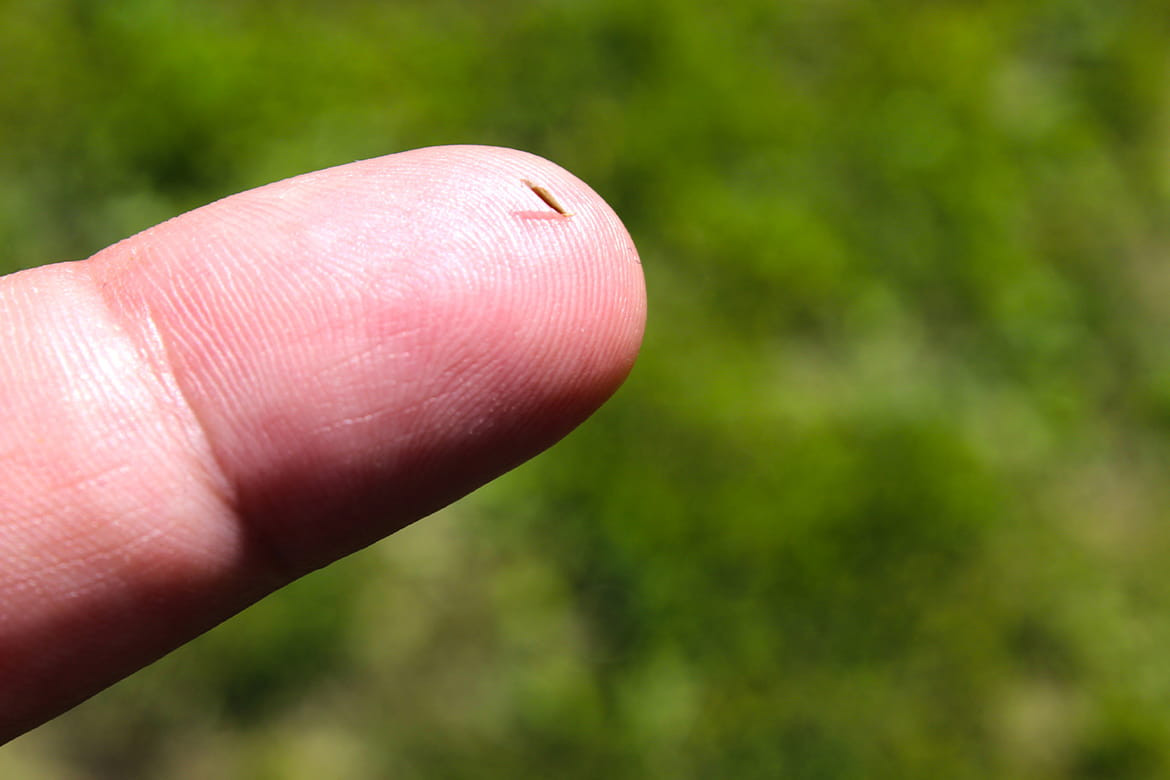Definition
A vaginal foreign body refers to a condition in which an object is found inside the vagina that does not belong there. Some examples of objects that are designed for vaginal use include tampons, menstrual cups, vaginal suppositories (medications inserted into the vagina), contraceptive diaphragms, and sex toys.
Other objects not intended for vaginal insertion can enter either accidentally or intentionally. If these foreign objects become stuck or remain in the vagina for an extended period, they can cause symptoms due to infection and damage to the surrounding tissues.
Causes
Children
The most common foreign bodies found in the vagina of children include:
- Fibers or small pieces of cloth from carpets and clothing
- Small toys
- Marker or crayon caps
- Toilet paper, which is the most frequently found object
Children have a high level of curiosity. They might insert objects into their vagina and then forget that they are there. After inserting the object, it may be impossible to remove it.
Objects found in children are typically small and do not cause pain due to their size. Children generally will not insert objects larger than their vaginal opening due to the pain or discomfort it would cause. Although rare, a foreign body in a child's vagina can also indicate a case of sexual abuse.
Adolescents and adults
Women may use tampons during their menstrual cycle. Sometimes, they forget to remove the tampon, leaving it in place for several days. This can also happen with toilet paper that is not removed.
Additionally, in sexually active women, condom tears can leave fragments such as latex inside the vagina. Adults may insert foreign objects into the vagina as part of sexual activity.
In some rare cases, the presence of a foreign object can be a sign of sexual abuse, where unusual objects may be inserted into the vagina.
Risk factor
There are no special factors that increase the risk of women experiencing this condition. Cases of foreign objects in the vagina can occur in children, adolescents and adult women.
Symptoms
A vaginal foreign body may cause symptoms or can be asymptomatic for a long time. Small objects inserted into the vagina generally do not cause pain. However, pain can occur if the object is larger than the vaginal opening or has sharp edges. Pain can be felt inside or around the vagina.
Women may also experience abnormal discharge with a foul odor. The discharge can be yellow, pink, or brown due to the foreign object disrupting the normal vaginal flora.
Other symptoms that may result from a vaginal foreign body include:
- Light vaginal bleeding, which can occur in children who have not yet started menstruating or in adolescents
- Itching, burning sensation, or discomfort in the vagina
- Foul-smelling vaginal odor
- Discomfort during urination
- Redness of the skin
- Swelling of the vagina and genital opening
- Rash in the genital area
Diagnosis
Detailed information about the symptoms is typically the first thing a doctor will ask. Besides asking about the possibility of a foreign object in the vagina, the doctor will inquire about the patient’s medical history and conduct a physical examination to diagnose the presence of a vaginal foreign body.
Although rare, a vaginal foreign body can sometimes indicate sexual abuse. Therefore, the doctor might also ask about sexual activity history and the possibility of abuse, whether sexual or physical. For children suspected of having a vaginal foreign body, the doctor will gently examine the vaginal lips and opening using a flashlight.
The method for diagnosing and removing the foreign body will depend on the patient's age and sometimes on the duration the object has been in the vagina. While a physical examination is generally sufficient to detect a foreign body, imaging tests such as a CT scan, X-ray, or ultrasound may help diagnose. Vaginal swabs and urine cultures can also help detect if an infection is present.
Management
Foreign objects in the vagina must be removed to prevent irritation and infection. Small objects can be removed in the examination room. In sexually active women, a speculum can be used to visualize the inside of the vagina, and the foreign body can be removed with forceps.
For patients with larger objects causing pain or damage to the vaginal wall, sedation or anesthesia may be required to remove the object completely. Sedation is also used if the object has caused erosion of the vaginal wall or if the patient is uncooperative during the examination.
Antibiotics may be prescribed if the foreign body has caused injuries to the vaginal wall or if there are symptoms of an abdominal infection. Once the foreign body is removed, symptoms such as fever, pain, and discharge usually subside.
Home care
- Take prescribed pain relievers or antibiotics.
- Do not use vaginal cleansers unless instructed by a doctor.
- Wait until all symptoms subside before engaging in sexual activity.
- Consult a doctor before using tampons again.
- Change tampons regularly and remember to remove them from the vagina.
- Contact a doctor if new symptoms or specific concerns arise.
Complications
Vaginal foreign bodies rarely cause serious complications. However, they can cause cuts or tears in the vagina. Infection can spread to the abdominal cavity if microbes infect vaginal injuries. An abdominal infection can cause sudden abdominal pain. Some literature reports cases of abscesses (pockets of pus) in the pelvis and subsequent scar tissue formation.
Prevention
Preventing infections related to vaginal foreign bodies starts with maintaining vaginal hygiene:
- For young children, teach them to clean the genital area from front to back to reduce the number of bacteria and dirt entering the vagina. Poor genital hygiene can lead to irritation.
- Parents can educate children about their body parts so that if they feel something is wrong, they can easily communicate their concerns to the parents.
- Do not use tampons for more than 6-8 hours.
- Avoid sexual activities that involve inserting objects that can cause pain into the vagina.
When to see a doctor?
You should consult a doctor if you experience pain, itching, skin rash, abnormal discharge, or bleeding from the genitals.
Looking for more information about other diseases? Click here!
- dr Hanifa Rahma
A Foreign Body in the Vagina. (2022). Retrieved 6 August 2022, from https://www.webmd.com/women/guide/foreign-body-vagina.
Pediatric Vaginal Foreign Body - Children's Health. (2022). Retrieved 6 August 2022, from https://www.childrens.com/specialties-services/conditions/foreign-body.
Vaginal Foreign Body, Removed (Adult). (2022). Retrieved 6 August 2022, from https://www.fairview.org/patient-education/116678EN.












